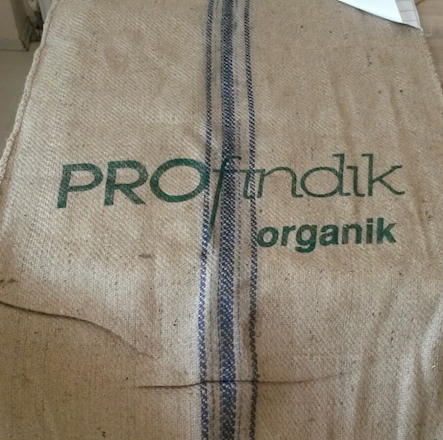What is Biological, Ecological, Organic Agriculture?
It is a controlled and certified agricultural production system in every stage from the production to the consumption with the inputs allowed for the production of this specialty, without using chemical fertilizers and pesticides which are harmful for human health in production.

SUSTAINABLE AGRICULTURE & ORGANIC AGRICULTURE
- Use local input sources in the same place
- Techniques for protecting the environment and human health
- Sustainability and traceability system
- Labeling with Organic logo
- Create new employment areas in different sectors and especially the service sector
- Contributions to the protection of biodiversity,
- Increasing local employment etc.
ofi & ORGANIC AGRICULTURE
Since 2013 we have been running the Organic Agriculture program as the ofi Sustainability Department. Within the framework of the Organic Agriculture project, our farmers group, which is growing day by day, aims to increase productivity and quality without using chemical agriculture inputs (drugs, fertilizers etc.) with the main target of sustainability and traceability in our hazelnut supply chain, mainly in Eastern and Western Black Sea.
Biodiversity
Increasing use of chemicals in recent years has had a significant negative impact on biodiversity due to its effect on environment and livelihoods. The pesticides and fertilizers used terminate the natural enemies of harmful bugs and lay the ground for the formation of new diseases and pests.
Natural production is protected by organic production; human and environmental health are protected and soil fertility is increasing. Organic production principles such as the prohibition of the use of chemical pesticides and fertilizers, the control of diseases and harms by biological fighting, the control of every stage from production to consumption, and the certification of the product obtained are clear indications of the positive effects of organic production on biodiversity.
Since no chemical pesticides and fertilizers are used; natural species are protected, soil erosion and pollution is prevented, ecological system and biological cycle are maintained.
Organic Program Activities
- Conducting soil analysis for the individual farmers in order to advice for fertilizer usages.
- Supplying equipment such as gloves, hats, scarf helmets, swords, files, hand saws and mask of scythes to our farmers.
- Supplying production recording ledger to the farmers in which the farmers will record their agricultural activities in the farm during the production season.
- Training farmers every year on "Soil Protection, Preparing and Fertilizing, Organic Fertilizer Preparation, Plant Protection Routes in Organic Production, drying, Harvesting and Storage and Good Social Practices".
- Distributing marked jute bags to ensure that every crop in the Organic Program is stored and transported accoding to the regulations. The code on the jute bag differentiates the organic products from the conventional product. Each incoming jute bag is counted separately and is marked on a separate area and stored on designated pallets.
- Conducting "Product Residue Analysis" in accredited labs.
- Ensuring the farmer gets the governmental financial incentive per decare under the Organic Program.